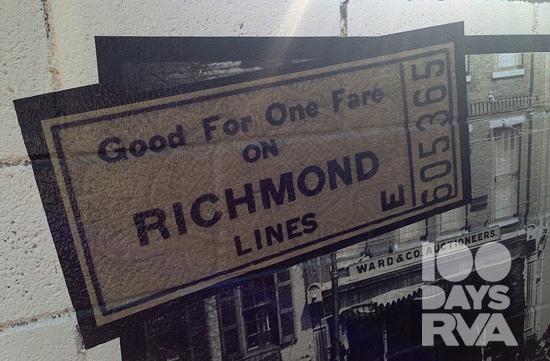Day #062: Incentives for going on a car diet
What would it take to get you on the bus?

Inspired by Michael Bierut’s 100 Day Project, 100 Days to a Better RVA strives to introduce and investigate unique ideas to improving the city of Richmond. View the entire project here and the intro here.
- Idea: A certain number of free GRTC trips for individuals who go on a car diet by choice or as the result of unfortunate circumstances.
- Difficulty: 1 — GRTC has already invested in fixed costs. The cost of this could be covered by a portion of the marketing budget.
Many if not most local issues can be easily traced back to transportation. Parking is constantly a huge concern with financial and legal ramifications. Many complain about congestion, and it influences everything from the debate over stadium locations to our patterns of development. At every level of American society we have a transportation problem. There are two ways to ease the demand on our roadways: increase the costs of driving or lower the costs of alternatives.
As my US history teacher used to put it, “some issues take nine months and 18 years to change.” This could take even longer. In the meantime, GRTC could offer a certain number of free rides to individuals who sell/lose their car and don’t have plans to get another.
The program would be an incentive for individuals to go on a car diet as well as a way to mitigate the loss of mobility to individuals who lose their cars because of financial reasons. Increasing “choice riders” and boosting ridership will help GRTC continue its mission to provide clean, safe, and reliable transportation and to improve mobility and access throughout Central Virginia.
Reducing the number of automobiles on the road has several benefits to communities. It reduces the burden on millions of dollars of decaying infrastructure in the Richmond area used for driving and parking. Automobiles represent a huge chunk of household spending, and 84.5% of that chunk leaves the local economy according to Jeff Speck.
Walkability is the cheapest and one of the most powerful tools for fighting health issues in the US, and it could save our nation countless dollars over the coming decades. Deadly bus accidents are a rarity. Meanwhile, 30,000 people die every year in automobile accidents. Finally, automobiles create bubbles of isolation that reduce the types of interactions that build neighborliness and foster empathy.
On a national level, transit reduces demand on oil resulting in lower prices, promotes energy independence, and protects the environment.
Last week, for instance, the American Public Transportation Association reported that 74 percent of people support more mass transit spending. But only 5 percent of commuters travel by mass transit. The Atlantic, City Lab
This is a powerful indication that people believe in the societal benefits of mass transit but they don’t have the individual incentives or knowledge1 to ride the bus. Offering attention grabbing but inexpensive incentives that promote the adoption of mass transit not only benefits the riders, but the entire city of Richmond.
Love this idea? Think it’s terrible? Have one that’s ten times better? Head over to the 100 Days to a Better RVA Facebook page and join in the conversation.
Photo by: UR Living Learning
- Riding the bus is like going to the airport. If it’s your first time and you’re alone, it is confusing and there is assumed knowledge and norms that can only be learned through repetition. ↩
-
Recommend this
on Facebook -

Report an error
-

Subscribe to our
Weekly Digest





Notice: Comments that are not conducive to an interesting and thoughtful conversation may be removed at the editor’s discretion.